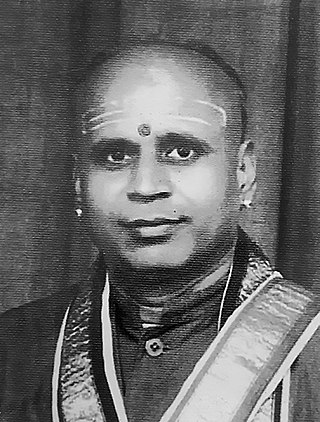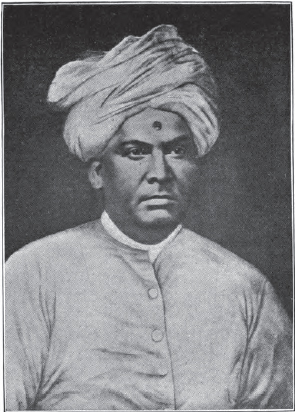See also
- Sastri Nagar
- Sivanath Sastri College, undergraduate liberal arts college for women in Kolkata, India
- Seema Sastri , Telugu film starring Allari Naresh and Farjana
- Shastri
- Sastry
Sastri is a surname. Notable people with the surname include:

Carnatic music, known as Karnāṭaka saṃgīta or Karnāṭaka saṅgītam in the South Indian languages, is a system of music commonly associated with South India, including the modern Indian states of Karnataka, Andhra Pradesh, Telangana, Kerala and Tamil Nadu. It is one of two main subgenres of Indian classical music that evolved from ancient Hindu texts and traditions, particularly the Samaveda. The other subgenre being Hindustani music, which emerged as a distinct form because of Persian or Islamic influences from Northern India. The main emphasis in Carnatic music is on vocal music; most compositions are written to be sung, and even when played on instruments, they are meant to be performed in gāyaki (singing) style.
Vishwanath is an Indian surname and given name. It is of Hindu origin and derives from višvanatha, meaning "lord of the universe", including the Tamil-Malayalam third-person masculine singular suffix -n, -m. It may refer to:

Muthuswami Dikshitar (Mudduswamy Dikshitar)(IAST: muttusvāmi dīkṣitar, 24 March 1776 – 21 October 1835), mononymously Dikshitar, was a South Indian poet, singer and veena player, and a legendary composer of Indian classical music, who is considered one of the musical trinity of Carnatic music. Muthuswami Dikshitar was born on 24 March 1775 in Tiruvarur near Thanjavur, in what is now the state of Tamil Nadu in India, to a family that is traditionally traced back to Virinichipuram in the northern boundaries of the state. His compositions, of which around 500 are commonly known, are noted for their elaborate and poetic descriptions of Hindu gods and temples and for capturing the essence of the raga forms through the vainika (veena) style that emphasises gamakas. They are typically in a slower speed (chowka kala). He is also known by his signature name of Guruguha which is also his mudra (and can be found in each of his songs). His compositions are widely sung and played in classical concerts of Carnatic music.

Syama Sastri or Shyama Shastri was a musician and composer of Carnatic music. He was the oldest among the Trinity of Carnatic music, Tyagaraja and Muthuswami Dikshitar being the other two.

Presidency College is an art, commerce, and science college in the city of Chennai in Tamil Nadu, India. On 16 October 1840, this school was established as the Madras Preparatory School before being repurposed as a high school, and then a graduate college. The Presidency College is one of the oldest government arts colleges in India. It is one of two Presidency Colleges established by the British in India, the other being the Presidency College, Kolkata.
Rao is a title and a surname native to India. It is used mostly in states of Andhra Pradesh, Gujarat, Haryana, Karnataka, Maharashtra, Rajasthan, and Telangana.

Chola Nadu is a cultural region of the Tamil Nadu state in southern India. It encompasses the lower reaches of the Kaveri River and its delta, and formed the cultural homeland and political base of the Chola Dynasty which ruled large parts of South India and parts of Sri Lanka between the 9th and 13th centuries CE. Uraiyur served as the early Chola capital, then medieval Cholas shifted to Thanjavur and later cholas king Rajendra Chola I moved the capital to Gangaikonda Cholapuram in Ariyalur in the 11th century CE.

Dewan Bahadur Sachivottama SirChetput Pattabhiraman Ramaswami Iyer, popularly known as Sir C. P., was an Indian lawyer, administrator and politician who served as the Advocate-General of Madras Presidency from 1920 to 1923, Law member of the Executive council of the Governor of Madras from 1923 to 1928, Law member of the Executive Council of the Viceroy of India from 1931 to 1936 and the Diwan of Travancore from 1936 to 1947. Ramaswami Iyer was born in 1879 in Madras city and studied at Wesley College High School and Presidency College, Madras before qualifying as a lawyer from the Madras Law College. He practised as a lawyer in Madras and succeeded S. Srinivasa Iyengar as the Advocate-General of the Madras Presidency. He subsequently served as the Law member of the Governor of Madras and of the Viceroy of India before being appointed Diwan of Travancore in 1936.

Anandabhairavi or Ananda Bhairavi is a very old melodious rāgam of Carnatic music. This rāgam also used in Indian traditional and regional musics. Ānandam (Sanskrit) means happiness and the rāgam brings a happy mood to the listener.
Vadama, meaning "Northerners", are a sub-sect of the Iyer community of Tamil Brahmins. While some believe that their name is an indication of the fact that they were the most recent Brahmin migrants to the Tamil country others interpret the usage of the term "Vadama" as a reference to their strict adherence to the Sanskrit language and Vedic rituals which are of northerly origin.
The Trinity of Carnatic Music, also known as the Three Jewels of Carnatic Music, refers to the outstanding trio of composer-musicians of Carnatic music in the 18th century—Tyagaraja, Muthuswami Dikshitar, and Syama Sastri. Prolific in composition, the Trinity of Carnatic music is known for creating a new era in the history of carnatic music by bringing about a noticeable change in what was the existing carnatic music tradition. Compositions of the Trinity of Carnatic music are recognized as being distinct in style, and original in handling ragas. All three composers were born in Thiruvarur, formerly part of Thanjavur District in Tamilnadu. M. S. Subbalakshmi, D. K. Pattammal, and M. L. Vasanthakumari, who are carnatic musicians of the 20th century, are popularly referred to as the female Trinity of Carnatic Music.
Shastri or Shastry is a Brahmin surname. The word shastri translates to 'scholar'. It is derived from Sanskrit and means one who is proficient in the Shastras. Notable people with the surname include:

The culture of Andhra Pradesh embodies some very exclusive and special entities.

Mayuram Viswanatha Sastri (1893–1958) was a Carnatic music composer. His most remembered composition is the patriotic song "Jayathi Jayathi Bharata Mata". Translated "Victory Victory to Mother India", the song has become a standard among classical singers of South India. This song is one of the 18 songs in his book 'Bharat Bhajan' which was published in the year 1948 containing songs in praise of Bharat Matha and Mahatma Gandhi. This book was one among his many publications. See AIR's 13-episode documentary of his works.

Calamur Viravalli Runganada Sastri was an Indian interpreter, jurist, civil servant and polyglot who was known for his mastery over Indian and foreign languages alike in both classical and vernacular forms, as well as his general erudition and command of jurisprudence. In a time where higher positions were foreclosed to Indians, Sastri, in recognition of his brilliance, was nonetheless appointed a Fellow of the University of Madras, rapidly thereafter becoming the first native Indian appointed to the judicature as a judge of the Small Claims Court, and, later, to the Madras Legislative Council.
Diwan Bahadur Sir Calamur Viravalli Kumaraswami Sastri was an Indian jurist, statwdman, Sanskrit scholar who served as justice and, later, Chief Justice of the Madras High Court.
Sastry may refer to:
Mahamahopadhyaya is an honorific title given to prestigious scholars by the Government of India. Prior to 1947, the title was bestowed by the British Raj, and before them, by the kings of ancient India. In ancient India, a scholar that wrote works based on topics related to the shastras was granted the title Mahopadhyaya. The title Mahamahopadhyaya was bestowed on the best amongst the Mahopadhyaya scholars.